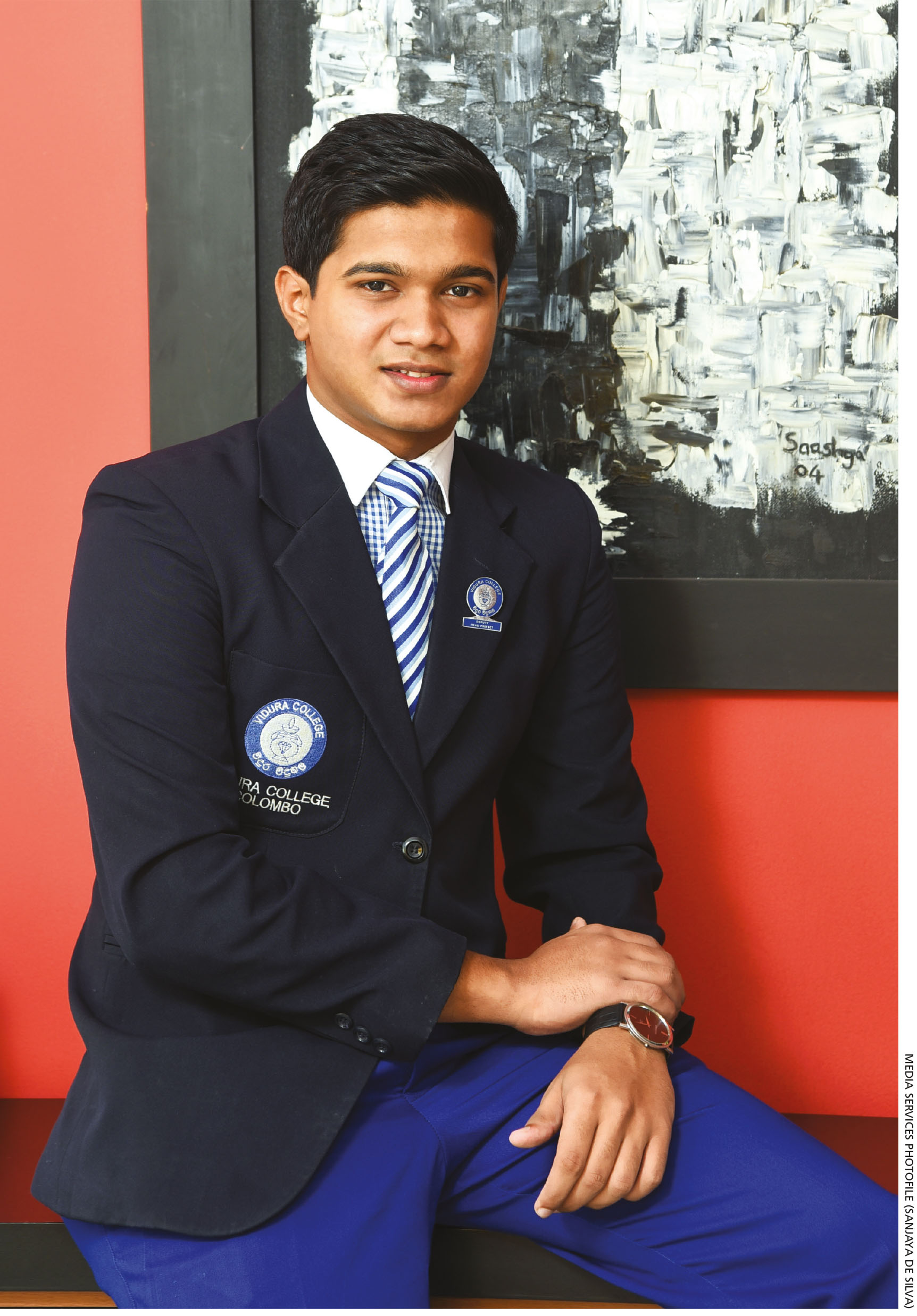YOUTH FORUM
Compiled by Savithri Rodrigo
TIME TO FOCUS ON HUMANITY
Shakil Arifeen would like to see an end to religious and cultural disputes
Q: How can Sri Lanka retain the talent it has at this juncture of its development?
A: If the government and private sector display more interest in the talent that students possess, it can be retained.Young talent exists across the country but there’s inadequate support to build their confidence so that it would spur them to work harder and reach greater heights. Financial support will boost the self-confidence of talented individuals – and with proper guidance, talent can be developed to match international standards.
Q: What are some of the opportunities you see for young Sri Lankans such as yourself?
A: There aren’t many high quality prospects, which is one of the reasons why students leave the country for higher education as the fields they wish to pursue are not available here – and even if there are, the facilities are limited in terms of access to higher knowledge.
At present, there are opportunities to become civil, electrical or electronic engineers. But they too would be out of reach due to large numbers of students looking to enter these streams despite university placements being limited.
Q: Are there young leaders who can take the country forward – and what traits would you want to see in them?
A: There are young people with admirable leadership qualities around the island. The fact that students debate intelligently on current affairs demonstrates that a large number are interested in developing the nation and taking it forward.
Equality for all citizens, analysis and problem-solving following meaningful discussion, the capability to interact and understand multiple points of view, being open to criticism, and the ability to accept mistakes and learn from them are traits I’d like to see in future leaders.
Q: Do you believe that Sri Lanka will be truly united one day?
A: We will unite when Sri Lankans understand that disputes based on religion and culture are petty, and a waste of time. I’m very proud when I see people putting religion aside to focus on humanity.
A majority understand the importance of helping each other – especially in the event of natural disasters or terrorist attacks. Despite a few who instigate religious disputes, people are capable of strengthening bonds between the brothers and sisters of this nation.
Q: So where do you see yourself in 10 years’ time?
A: Working hard to achieve my life goals and helping anyone in need. I would have achieved my educational goals, as well as community and social work that I intend to do, creating awareness on matters of national progress and improvement. Furthermore, I hope to launch a fundraiser that will change the lives of people.
Q: How do you view the incidence of global poverty and environmental degradation?
A: Global poverty refers to those who earn less than US$ 1 a day. This issue can be dealt with by providing reasonable wages, and free medical care and education, for them to manage their living standards and quality of life.
Environmental degradation is caused by humans who have transformed nature to suit their needs. We need to change our lifestyles and stringent measures must be adopted to curb rapid environmental degradation.
Q: What needs to be done about the spectre of climate change, in your opinion?
A: Its reversal must begin with individuals – for instance, through simple actions such as changing the way we dispose of garbage, reducing our carbon footprint by opting for public transport and using non-CFC producing products.
Increasing awareness is the most important measure and the media must take responsibility for this.
Q: How do you view the growing importance of social media in today’s increasingly disruptive context?
A: Social media plays a major role in people’s lives today. As a result, it can change their opinions and points of view instantly. Social media is also a medium through which opinions or messages can be communicated to any part
of the world.







Leave a comment